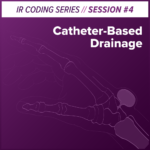I’d like to begin with a thank-you to Dr. Stephanie Van Zandt, Medical Director of Physician Advisor Services at BayCare, for sharing this news.
The Centers for Medicare & Medicaid Services (CMS) is shifting the responsibility for inpatient hospital short-stay reviews from the Beneficiary and Family Centered Care Quality Improvement Organizations (BFCC-QIOs) to the Medicare Administrative Contractors (MACs), effective Sept. 1. According to the Inpatient Hospital Reviews FAQs | CMS, the justification for this change is to allow the BFCC-QIOs (Acentra Health and Livanta) to focus their efforts on quality improvement and expedited appeals.
With the additional time afforded to the BFCC-QIOs, they will be shifting their focus to other quality-related functions, such as higher-weighted DRG reviews, hospital discharge appeals, and quality-of-care concerns. This realignment allows QIOs to focus on broader quality improvement initiatives, while MACs, already responsible for various audit and compliance efforts through the existing Targeted Probe-and-Educate (TPE) program, will bring greater oversight to short-stay reviews.
The inclusion for prepayment reviews on hospital short stays will now be prioritized for review under the MAC-led Targeted Probe and Educate (TPE) program. According to the FAQs from CMS, a hospital short stay is defined as a length of stay that is fewer than two midnights after inpatient admission. While such admissions may be clinically appropriate, CMS has identified them as having a higher risk category for improper payments. These reviews will be performed by registered nurses (RNs) with available access to the MAC’s medical director(s).
These reviews will evaluate patient status documentation to ensure that each patient’s condition supports the need for inpatient hospital services, in accordance with 42 C.F.R. § 412.3(d) and not proprietary commercial screening tools like InterQual or MCG.
MACs will apply the existing TPE program, which uses data analytics to identify providers with outlier billing patterns. MACs will conduct these reviews on a prepayment basis, giving providers the ability to rebill Part B when Part A payment is denied, or pursue the further appeals should the provider disagree, in accordance with the Medicare appeals process. According to the details, this prepayment review will be completed with a sample of 20-40 claims per provider, as a round of review. Providers may have a total of up to three rounds before they are referred to CMS for additional administrative action.
CMS and the MACs have outlined an implementation plan that includes educational outreach, updated guidance in the Program Integrity Manual, and MLN communications. The next informational session was announced for Wednesday, July 30, and registration is still open.
This transition will not change CMS’s patient status policies, nor diminish the importance of a physician’s clinical judgment. However, hospitals must now ensure that documentation clearly supports the need for inpatient care under the two-midnight rule. With MACs leading these reviews, providers can expect more targeted oversight, demonstrating CMS’s commitment to reduce waste and abuse.
Programming note: Listen live to Talk Ten Tuesday today at 10 am Eastern, when Tiffany Ferguson reports this story.













